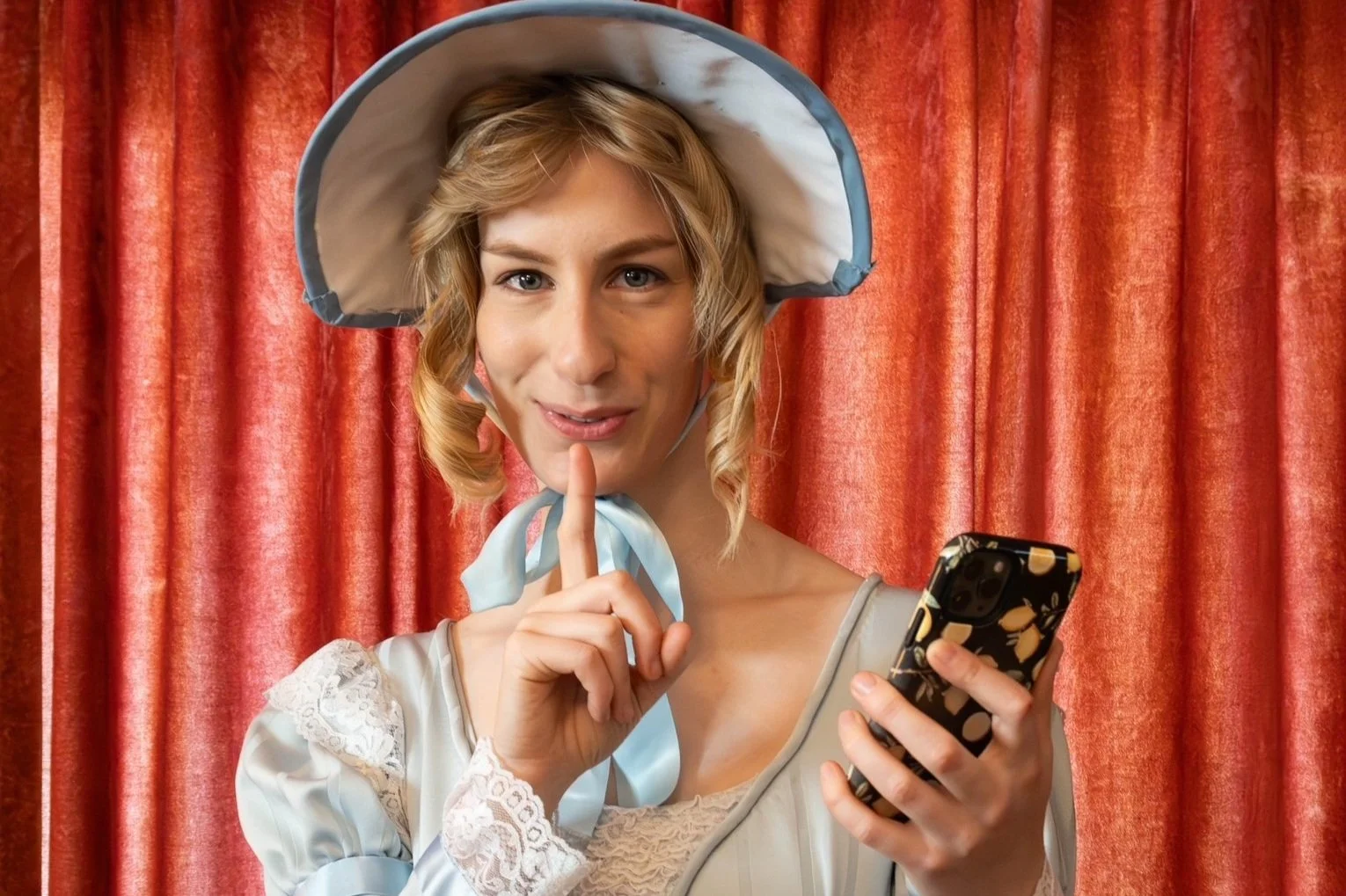Lil’wat playwright Yvonne Wallace's new short film reflects her own language recovery
Her cuzlhkán kalāxsa nqwal̛úttena (I am going to remember my language) debuts at Touchstone Theatre’s Seismic Shift on July 21
Yvonne Wallace in a still from cuzlhkán kalāxsa nqwal̛úttena (I Will Remember My Language).
Touchstone Theatre presents a free screening of cuzlhkán kalāxsa nqwal̛úttena (I am going to remember my language) on July 21 at 7 pm. Register for a talkback with the artist after the streaming here.
LIL’WAT PLAYWRIGHT and performer Yvonne Wallace’s new one-woman digital short started with a question: “What would it be like if you woke up and you were able to speak your ancestral tongue?”
Imagining the answer has inspired her first short online film, cuzlhkán kalāxsa nqwal̛úttena (I Will Remember My Language), created as part of Touchstone Theatre’s pandemic-year Seismic Shift series of digital shorts.
Shot amid the forests and waters of Lil’wat Nation territories, the story follows an Indigenous woman (Wallace) who suddenly becomes fluent in Ucwalmicwts after a surprising encounter at the edge of Lillooet Lake. She climbs the valley in search of phone reception to contact her mother—the only one who will understand her—and finds herself transformed by her ancestry.
“This film is about who is going to talk with you and who is going to understand you,” she tells Stir over the phone from the 31-degree heat of N’quatqua territories in Darcy. “It’s about the connection to language and self. It really all intersects: the relationship to family, to ancestry, to language and culture.”
Clocking in at a tight eight minutes, the film is bilingual, featuring English in the first part, with Wallace performing the rest of it in Ucwalmicwts.
Her character’s sudden ability to speak Ucwalmicwts contrasts the years of hard work that Wallace herself has devoted to learning her people’s language—a process she’s been able to immerse herself in during the pandemic.
Wallace’s grandmother and great-grandmothers spoke the language fluently and her own mother, Virginia Gloria Wallace, teaches it. The playwright started relearning Ucwalmicwts after being away from home for 21 years. Living in the Vancouver area at that time, she had to make the long commute to the Líl’wat Nation once a week for lessons.
That process led to a solo show called ūtszan, seen locally at the Heart of the City Festival in 2019: it told the story of a woman who returns home to the Líl’wat Nation after a long absence and her interactions with an older aunt who refuses to speak English and only uses Ucwalmícwts.
During COVID shutdowns last August, Wallace ended up moving back to N’quatqua. Along with finishing up her Master’s in Education Leadership at UBC and writing her fifth play, Rezonance, she’s been taking intensive language lessons with mentors, as well as having weekly conversations with her mother.
“It just feels really good to be home with family and friends,” Wallace says. “I just value my mother’s knowledge so much.”
It’s important to note here the progress that the Lil’wat Nation is making with language reclamation. Due to the legacy of colonial laws, only three percent of the Lil’wat Nation are fluent speakers. But it’s now built Ucwalmícwts into the curriculum at its local elementary and high schools, with a post-secondary institution, the Ts̓zil Learning Centre, offering a two-year Líl̓wat Nation Language and Culture Certificate in conjunction with Capilano University.)
Wallace’s mother helped her with the translations in cuzlhkán kalāxsa nqwal̛úttena (I Will Remember My Language)—and making the film has boosted the artist’s skills even more, she says.
Yvonne Wallace
“In film there isn't any flexibility when you do a whole scene and you mess up,” Wallace reflects. “I was able to learn where I put in too many sounds or I didn't add enough, so this exercise bolstered my vocabulary and understanding of sentences, too.”
It also reinforced her connection to the land. Directed, filmed, and edited by Ryan Regehr, the shoot took place amid the wilderness that surrounded Wallace growing up. “We shot it at Lillooet Lake, and that's where I spent a lot of my late summers in my earlier years,” she relates. “Where we filmed it is where we as children were sent to fetch water for camp.”
Her first film shoot was a positive experience for Wallace, but its theme of cultural reclamation carried extra weight in the wake of the discovery of unmarked graves at residential schools across Canada. In fact, the shoot took place only a day after the findings at the Kamloops residential school. “We were all in a state of shock,” says Wallace, who adds the anger didn’t fully set in with her until days afterward.
For the playwright, language reclamation and cultivation is a direct link to identity—to who she is, to where she’s from, and to how she wants to represent her ancestors and the people who will come after her. And it’s a key to rebuilding from past wrongs.
“The dominant culture is in the English language, and if we're talking about a bilingual country, it’s also in French. But what would it look like for reconciliation if dominant society created space for Indigenous people to speak their language, our language, without judgement or recourse?” Wallace says. “What does it look like when dominant culture gives up just a little bit of their space to make room for the people who were here first?”















